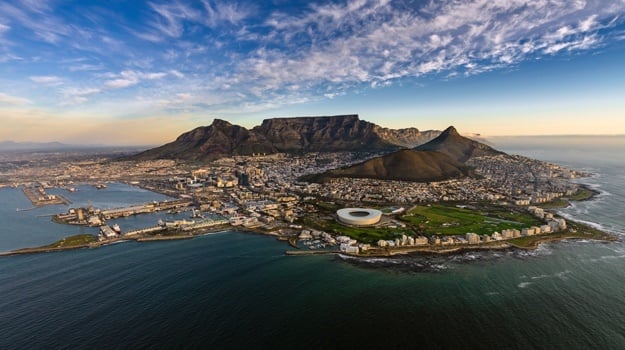
- Almost all of the top tourism attractions in the Western Cape reflect a more than 60% drop in visitors over the peak December tourism season.
- International travel bans, cancellations by airlines and the adjusted Alert Level 3 lockdown have had a severe impact on the tourism and hospitality sector in the Western Cape.
- There is still an opportunity to ensure the survival of businesses and jobs in the Western Cape by urgently relaxing the lockdown restrictions, says the MEC for economic opportunities.
Any hope of a recovery for the Western Cape's important tourism industry over the festive season has been lost, according to David Maynier, Western Cape Minister of Finance and Economic Opportunities.
"However the summer season is not yet over, and we still have an opportunity to ensure the survival of businesses and jobs in the Western Cape if we can urgently relax the [adjusted Lockdown Level 3] restrictions, specifically for the curfew to start at 23:00, the beaches to open and an easing of the alcohol ban," he said in a statement.
Almost all the top tourism attractions in the Western Cape reflect a more than 60% drop in visitors over the peak December tourism season. New data shows how the tourism industry, which forms a critical part of the economy of the province, has been hammered by the Covid-19 pandemic and related lockdown restrictions, placing the industry in a desperate state, according to Maynier.
"Considering the evidence that the Western Cape is passed its peak and the demand on our health services is stabilising, this reinforces the need to relax the [adjusted] Alert Level 3 restrictions that are negatively impacting the economy and resulting in, almost daily, business closures and jobs losses," he said.
"Last year, we recognised the importance of a strong summer season for the recovery of the tourism and hospitality industry that had been severely impacted by the Covid-19 pandemic. So, in the knowledge that it was safe to do so, we worked hard to ensure that the Western Cape was ready to safely welcome both international and domestic visitors, and that the Western Cape was positioned as an attractive destination choice for those looking for wide-open spaces and a variety of affordable and diverse experiences."
He admits that the intensity of the second wave of coronavirus infections could not have been anticipated, both locally and abroad. That resulted in stricter international travel restrictions, route cancellations by airlines and the adjusted Alert Level 3 restrictions. All of these factors have had a severe impact on the tourism and hospitality sector.
For example, international arrivals were much lower than initially anticipated for the traditional peak season. Official Airports Company of SA (ACSA) passenger data shows that passenger recovery at the international terminal of the Cape Town International Airport in December 2020 was a mere 19% of December 2019 volumes. Aircraft were operating at only 51% of their passenger load factors - compared to 72% in December 2019.
According to Maynier, this partially explains why the hotel industry, which is highly dependent on international travellers, has still not recovered. STR, which provide market data on the hotel industry, reports hotel occupancy levels in the Western Cape were at 32.7% in December 2020, compared to 68.1% in December 2019.
Hotels
In Cape Town, 5-star hotel occupancy levels were at 29% in December 2020, 4-star hotel accommodation at 34% and 3-star hotel occupancy at 31% occupancy. Similar results were reported for the Garden Route and the Cape Winelands.
Domestic travel In terms of domestic travel, vehicle counts nationally indicate that there was a reduction in the number of overland domestic travellers during the season. Traffic volumes have decreased by up to 27% on South Africa's major highways.
"The same trend was seen at our airports. The domestic terminal at Cape Town International Airport saw only 51% of the volume of travellers compared with December 2019. On a more positive note, aircraft had average passenger load factors of 72% which reiterates the importance of domestic travel in the current climate," says Maynier.
"With the announcement of hotspots and beach closures in December, coastal towns saw immediate cancellations from domestic markets. A survey by NightsBridge, conducted after the announcement of the Garden Route as a hotspot, found that one-third of guesthouses on the Garden Route indicated at least 50% of festive season cancellations. The same study reported that 12.7% of bookings in the Western Cape were cancelled."
For Maynier these reports not only show the precarious situation of the tourism and hospitality industry, but also the impact of the restrictions on the economy in the Western Cape.
"As we know from the most recent SA Tourism Survey - December 2020 - 58% of tourism and hospitality businesses were unable to service their debts and 61% of businesses were unable to cover fixed costs in October 2020. This was before the adjusted Alert Level 3 restrictions were announced in December," says Maynier.
He called on government to enable a balance between preventing the spread of Covid-19 while keeping the economyi as open as possible to save both lives and livelihoods.
